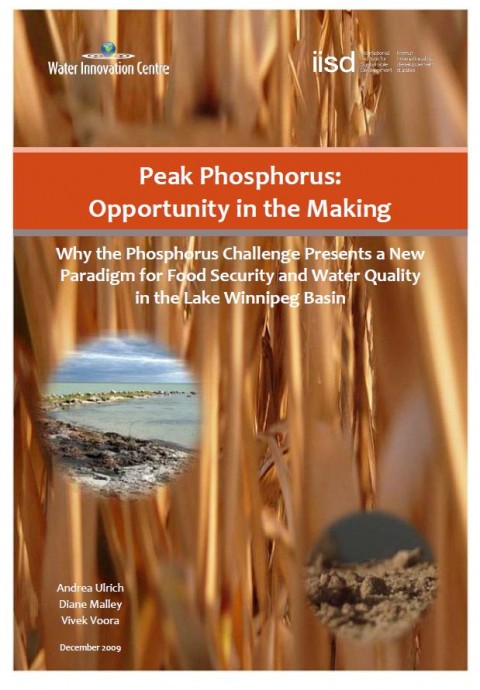Peak Phosphorus: Opportunity in the Making - Why the Phosphorus Challenge Presents a New Paradigm for Food Security and Water Quality in the Lake Winnipeg Basin
Ulrich, A., Malley, D., Voora, V. (2009)

Published in: 2009
Publisher:
IISD
Author:
Ulrich, A., Malley, D., Voora, V.
Uploaded by:
SuSanA secretariat
Partner profile:
common upload
10176 Views
17 Downloads
Location of library entry
Content - Summary
The long-term security of our global food and water supplies may be impacted by the mismanagement of our phosphorus nutrient resources. Essential to plant growth and all life, phosphorus is mined from rock phosphate deposits and synthesized into mineral fertilisers destined for agricultural fields. Easily mined rock phosphate reserves are dwindling and the constraints this could place on fertiliser production pose risks to our long-term ability to feed the planet. Excess phosphorus from agricultural fields runs off the landscape and eventually gets flushed into the ocean, where it takes millions of years to mineralise. Under the right conditions, phosphorus loads can choke water bodies as algae rapidly grow, die and decompose, depriving lakes, rivers, streams and coastal waters of oxygen. This process, referred to as eutrophication, threatens the security of our freshwater supplies and aquatic ecosystems. Phosphorus is fundamental to long-term food security, yet we mismanage it, allowing excess phosphorus to imperil our water resources.
Bibliographic information
Ulrich, A., Malley, D., Voora, V. (2009). Peak Phosphorus: Opportunity in the Making - Why the Phosphorus Challenge Presents a New Paradigm for Food Security and Water Quality in the Lake Winnipeg Basin. IISD
Filter tags
English















